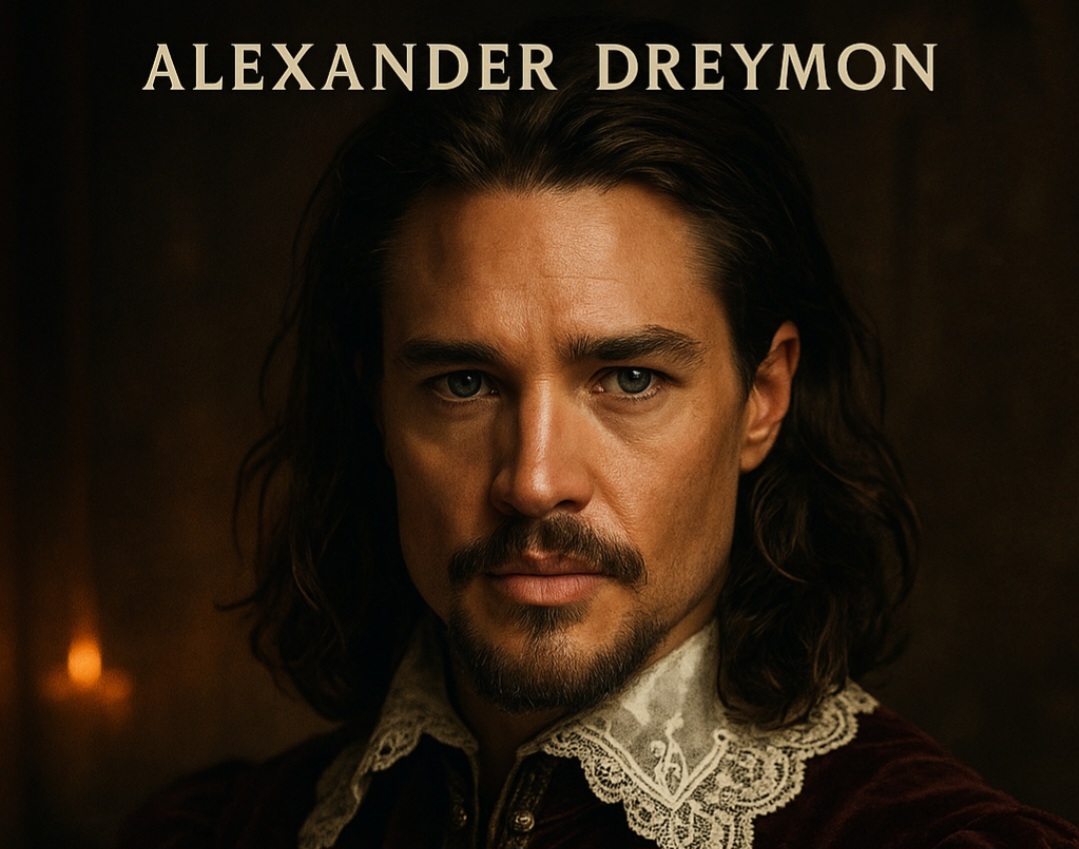
“The Musketeers”: Netflix’s Bold Reimagining of a Timeless Classic
Netflix’s new original series The Musketeers, starring Alexander Dreymon, reinvents Alexandre Dumas’ beloved tale with gritty realism, stylish flair, and a modern sensibility. Set in 17th-century France, this fresh adaptation dives deep into the political chaos, romance, and swashbuckling camaraderie that made the original story an enduring classic. From its lush costuming to pulse-pounding swordplay, The Musketeers brings the legend back to life with new intensity.
Alexander Dreymon, best known for his lead role in The Last Kingdom, takes center stage as D’Artagnan, the impetuous young swordsman who arrives in Paris seeking justice for his father’s murder. Dreymon brings a brooding depth and charisma to the role, balancing youthful idealism with the gritty resolve of a man molded by conflict. His magnetic presence anchors the series, setting the tone for a darker, more complex take on the Musketeer legacy.
The series opens in a France on the brink of civil war. Cardinal Richelieu, brilliantly portrayed by a yet-to-be-named character actor, manipulates the king from the shadows, while Spain and England circle like vultures. The King’s Musketeers serve as the last bastion of loyalty and justice in a kingdom teetering on collapse. This backdrop provides fertile ground for political intrigue and moral ambiguity, making the stakes feel ever more real.
What sets this adaptation apart is its visual storytelling. Shot on location in historic European towns and castles, the cinematography is breathtaking. Candlelit halls, mist-covered forests, and sun-drenched cobblestone streets immerse the viewer in a world that feels authentic and lived-in. Costume designer Elise de la Fontaine breathes life into each character’s wardrobe, using rich fabrics and historically accurate designs with a dash of modern drama.
The chemistry among the four main Musketeers—D’Artagnan, Athos, Porthos, and Aramis—is one of the show’s biggest strengths. Their banter, loyalty, and emotional depth elevate the series beyond mere action-adventure. Each character has a fleshed-out backstory and unique motivation, with Athos wrestling with past guilt, Aramis questioning his faith, and Porthos confronting his lower-class origins with defiant pride.
The action sequences are choreographed with brutal elegance. Unlike the stylized swordplay of past adaptations, The Musketeers leans into a more realistic combat style—dirty, fast, and unpredictable. The fights aren’t just flashy; they carry emotional weight, often representing internal conflicts or shifting alliances. It’s this grounded approach that makes every slash and parry feel like it matters.
But The Musketeers isn’t just about blood and honor—it also delves into the personal struggles of its characters. Themes of identity, loyalty, love, and betrayal run deep. D’Artagnan’s forbidden romance with a noblewoman caught between court politics adds emotional stakes, while Athos’ past threatens to destroy everything the Musketeers stand for. These threads weave together into a narrative as rich in emotion as it is in action.
Netflix has made a clear choice to modernize the story while honoring its roots. There are strong female characters, including an ambitious Queen Anne and Milady de Winter, who is reimagined as a tragic anti-heroine rather than a simple femme fatale. These women are not just love interests or plot devices—they are active agents of the story, driving much of the intrigue and conflict.
Musically, the series blends classical instrumentation with modern orchestral tension. Composer Lucien Moreau’s score is subtle yet sweeping, adding grandeur to royal courts and tension to clandestine meetings. It’s the kind of soundtrack that lingers after the credits roll, enhancing the emotional resonance of the series.
Critics are already praising Dreymon’s performance as career-defining, citing his ability to channel both stoic heroism and emotional vulnerability. His D’Artagnan is not a wide-eyed farm boy but a man forged by pain, determined to fight for something greater than himself—even if the cost is high. He embodies the timeless quote: “All for one, and one for all.”
While faithful to the spirit of Dumas’ original, The Musketeers doesn’t shy away from creative liberties. Historical events are subtly reimagined, villains are given depth, and the line between hero and antihero is often blurred. This narrative boldness is what makes the series resonate with modern audiences used to complexity in their characters.
Ultimately, The Musketeers is a triumph of storytelling, production, and performance. With Alexander Dreymon leading the charge, Netflix has delivered a high-stakes historical drama that honors its source material while carving out its own unforgettable identity. For fans of epic tales filled with loyalty, betrayal, swordplay, and heart, this series is not to be missed.
You may also like
Written by Fredrick Stephen
Archives
Calendar
| M | T | W | T | F | S | S |
|---|---|---|---|---|---|---|
| 1 | ||||||
| 2 | 3 | 4 | 5 | 6 | 7 | 8 |
| 9 | 10 | 11 | 12 | 13 | 14 | 15 |
| 16 | 17 | 18 | 19 | 20 | 21 | 22 |
| 23 | 24 | 25 | 26 | 27 | 28 | |